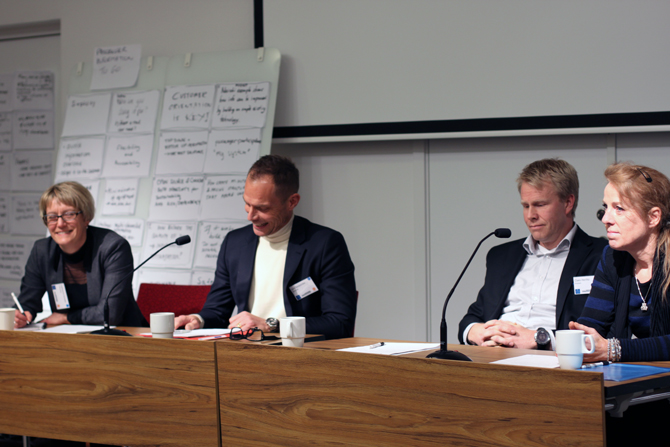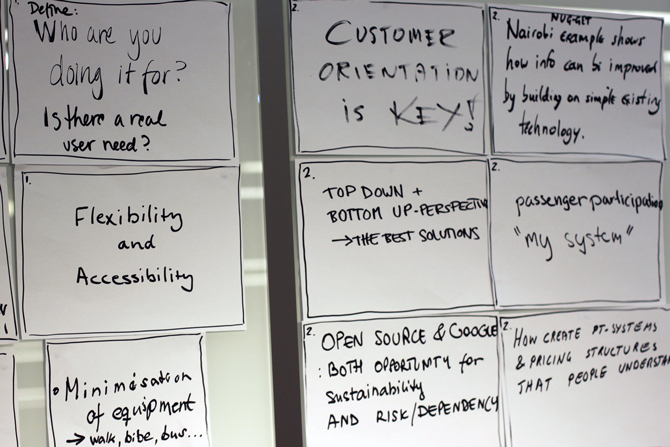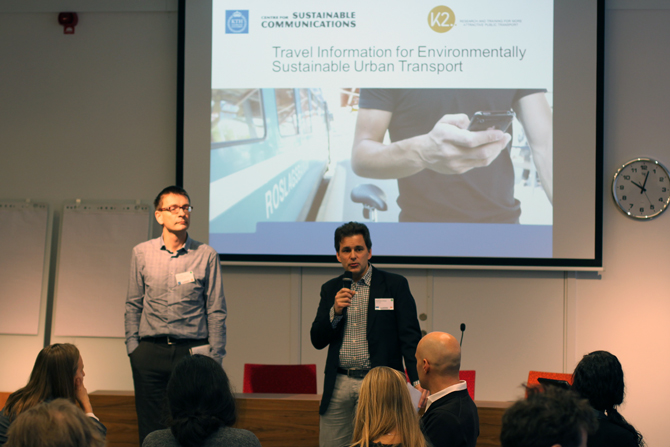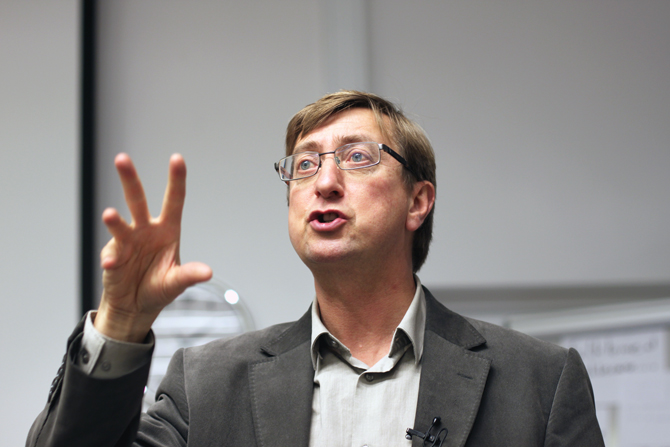Summary
On 21 November 2013, CESC and K2 National Knowledge Centre for Public Transport, jointly organised a symposium on Travel Information for Environmentally Sustainable Urban Transport.
The symposium attracted more than 60 participants from the academic sector, from industry and public authoroties. Moderator Peter Woodward guided the participants elegantly through the program that offered interesting research results and innovative examples from Germany, England, China and Tanzania.
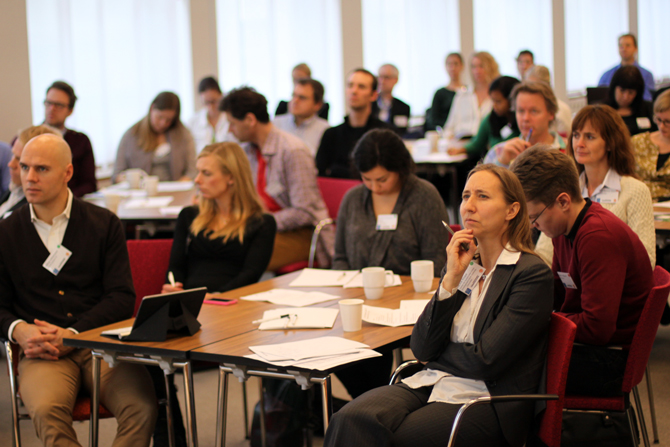
The symposium covered a broad array of topics and provided interesting angels and inputs for the highly qualified participants to discuss on. A lesson learned from the day was that a lot is going on in the area, but that there is a risk that non-motorised travel and alternatives towards shorter travel or no travel are omitted. We still need a better understanding of how travel information can support a transition towards sustainable mobility, not just more efficient travel.
We had invited four international guests to give different perspectives on travel information and an excellent moderator to keep us all on the environmental track. About 60 people, mainly professionals from businesses and public authorities took part in vivid discussions and also listened to a final panel with experts from Swedish industry and transport organisations.
Presentations
Stephan Sünderkamp from one of the leading travel information businesses, HaCon, started the day with a presentation of key features of the next generation of journey planners leading to discussions on co-modality and the need for better real time data.
Passenger Information to go – The next generation of journey planner (pdf 8.9 MB) Stephan Sünderkamp, HaCon, Hannover
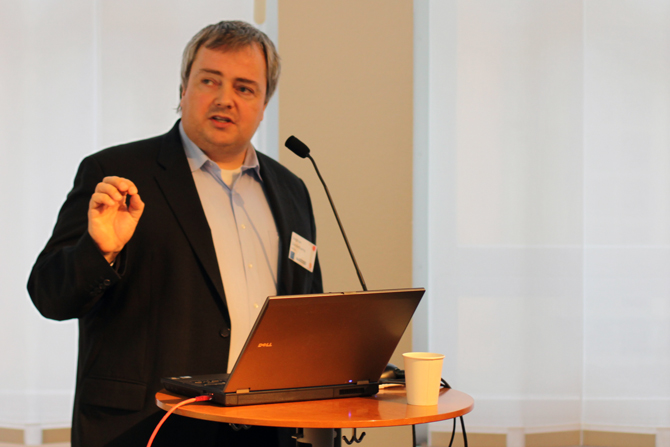
Jackie Klopp from Earth Institute, Columbia University, continued with a presentation of a project on open transit data and data standards in Nairobi. For the first time there is now a transit map of Nairobi, which has been produced through low cost data collection by actually riding the buses and recording the routes. The transit system stretching out in all directions from the city centre has been mapped so that it is now much more available for users, for app-developers and also possible to include in planning.
Why open transit data matters for environmental urban transport in Africa: a Nairobi case study (pdf 1.4 MB) Jackie Klopp, Columbia University, New York
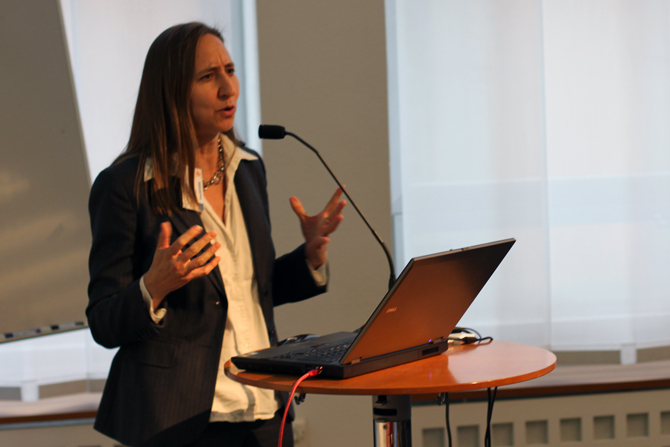
Glenn Lyons held a presentation where he stressed the importance to better understand context factors, i.e.the realities of everyday life when assessing the role and demand for travel information. He also emphasized the importance of prompts to consider new travel options and claimed that the ultimate achievement of travel information provision would be to reduce the cognitive and affective effort of unfamiliar travel to zero.
Human traits and technological possibilities in the advancement of travel information (pdf 1.5 MB) Glenn Lyons, University of the West of England – UWE Bristol
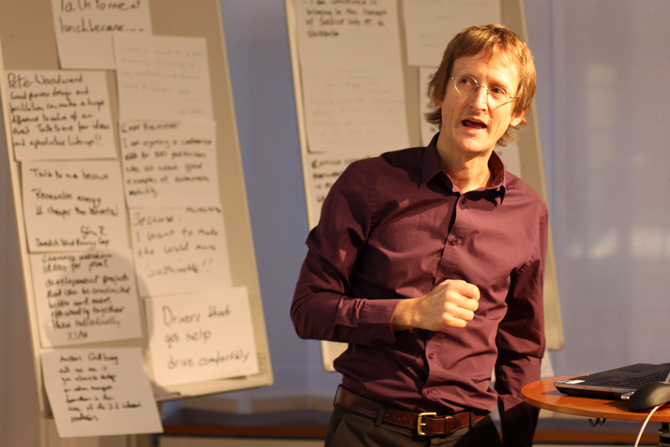
In the final talk of the day, Jianping Wu from Tsinghua University, presented a case in Beijing, where dynamic emission measuring is actually used to redirect traffic at times when the air standard gets too bad. This is a unique example of how traffic modelling, environmental sensoring and weather forecasts are combined to reduce high concentrations of pollution.
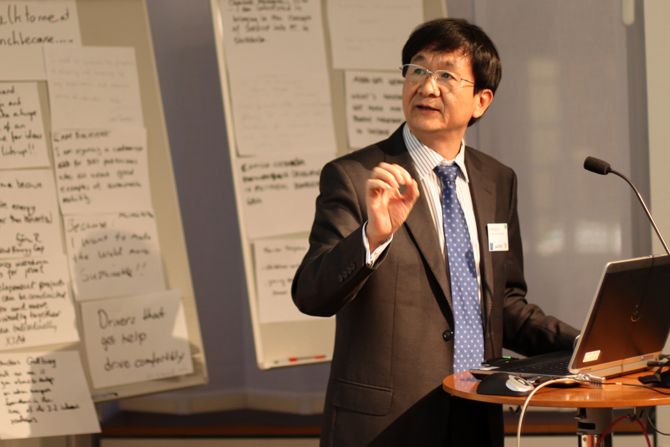
Panel discussion
The symposium was finalised with a panel discussion where Catherine Kotake from the Swedish Transport Administration, Lars Backström from Västtrafik, Sonja Forward from the Swedish National Road and Transport Research Institute and Claes Herlitz from Ericsson added their personal reflections on the presentations and discussions, and lifted some aspects of specific importance for continued research and practice within the field.
